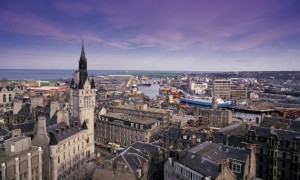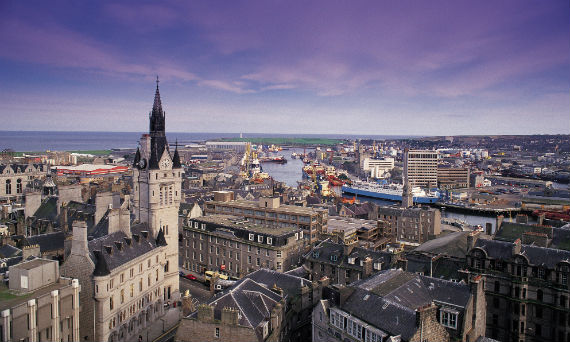 Disposable incomes in Aberdeen have risen at a greater rate than anywhere else in the UK since the 2008 financial crisis, according to a study from Accountancy firm UHY Hacker Young.
Disposable incomes in Aberdeen have risen at a greater rate than anywhere else in the UK since the 2008 financial crisis, according to a study from Accountancy firm UHY Hacker Young.
The study, which assessed disposable income in the UK’s 40 largest cities and towns, placed Aberdeen first. The average annual disposable income – the amount left after bills and other expenses are accounted for – measured £15,143 in Aberdeen.
The figure represents a £2,285 increase from before the recession. Other cities near the top of the rankings include Brighton, where residents pocket £14,869 each year, and Belfast, where residents have £15,104 in total disposable income annually.
London placed seventh in the survey. Economists believe that the large increase in disposable income, which occurred across the UK, is due to low interest rates that have resulted in a decline in mortgage costs across the country.
Aberdeen’s surge in disposable income is due to two factors, according to partner at UHY Hacker Young, Colin Wright. He said: “Households in Aberdeen have benefited from both the collapse in the UK’s mortgage costs and, uniquely, from the oil boom.”
Mr Wright places Aberdeen in the same category as “Houston, Bahrain and Almaty” as cities that have suffered relatively little economic decline during the recession. The oil industry has been one of Aberdeen’s largest employers for the last decade.
The decline in mortgage costs due to the low Bank of England interest rates have, in the eyes of many economists, offset the rising cost of living throughout the UK. They have also reduced the effect of real wage decline in comparison to CPI inflation.
Of the 40 cities and towns studied by the accountancy company, Nottingham saw its average disposable income increase the least. Residents had just £1,070 more at the end of this year than prior to the recession, with an average yearly disposable income of £10,834.





